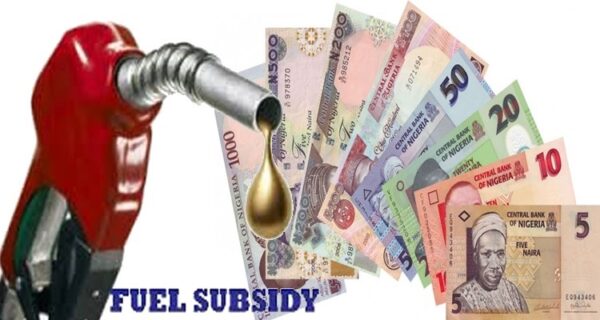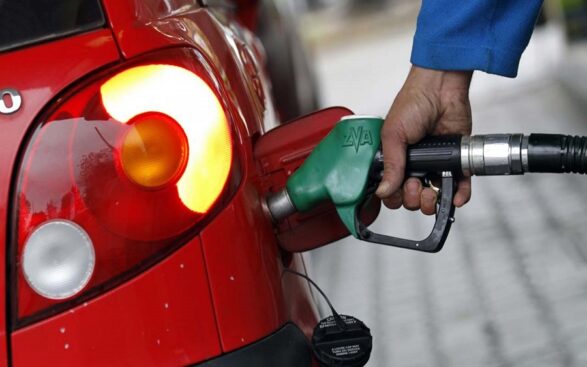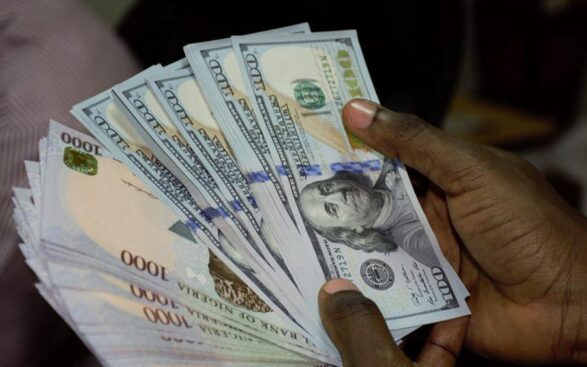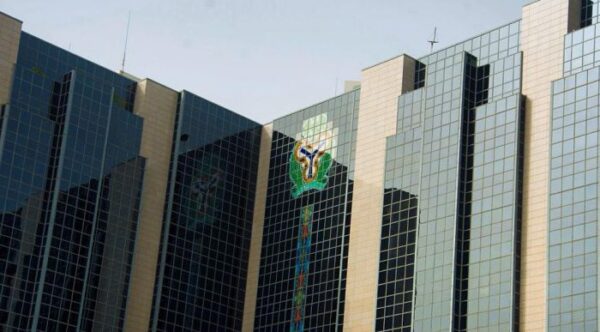In his inaugural speech, President Bola Ahmed Tinubu announced the end of fuel subsidy and the the need to unify multiple exchange rates in the country. Tinubu said fuel subsidy was no longer sustainable as it is taking a deep toll on the economy.
“We commend the decision of the outgoing administration in phasing out the petrol subsidy regime which has increasingly favoured the rich more than the poor. Subsidy can no longer justify its ever-increasing costs in the wake of drying resources. We shall instead re-channel the funds into better investment in public infrastructure, education, health care and jobs that will materially improve the lives of millions,” he said.
On the other hand the President noted that the currency redesign policy was hastily executed by the CBN, adding that the “The policy shall be reviewed. In the meantime, my administration will treat both currencies as legal tender,” he said.
However the question on the the lips on many Nigerians is what the speech of Tinubu will mean to their daily livelihood.
In this Explainer, Daily Trust attempts to answer these pertinent questions as it relates to subsidy and unified exchange rates.
WHAT IS FUEL SUBSIDY?

Fuel subsidy in its simplest meaning is a form of government intervention to reduce the cost of fuel by giving direct financial support to oil companies, thus, subsidise the product to consumers.
Nigeria is said to be among the largest crude oil producers in Africa with a minimum of 1.5 to 2 million barrels per day.
The announcement of fuel subsidy removal has already sent ripples in the oil and gas sector.
Few hours after the announcement, many fuel stations were shut down to conserve stock and sell at the new price of subsidy removal.
Some filling stations are selling at N350, N400 or N500 per litre, while others are deliberately hoarding the product. In some parts of the south, the product is said to be selling for as high as N600 per litre.
Nigerians have resorted to panic paying, although the federal government through the Nigerian Midstream and Downstream Petroleum Regulatory Authority have warned that there is no need for such.
However, when the subsidy is finally gone by June 30, it will have ripple effects on other sectors of the economy: cost of transportation will increase, there will be increase in food prices and services and this may even push up inflation.
This is the reason the government is planning to provide social interventions for vulnerable Nigerians that would boost affected by the subsidy removal. Former President Muhammadu Buhari government had said a loan of $800m had been approved to this effect by the World Bank
HOW MUCH WILL A LITRE OF FUEL COST?

The Group Chief Executive Officer (GCEO) of the Nigerian National Petroleum Company Limited, Mr. Mele Kyari, in November last year disclosed that the landing cost of Premium Motor Spirit(PMS), popularly called petrol stood at N510 per litre.
This means that with the current Price of PMS at N195 per litre sold by major marketers, the government is subsidising up to N315 on every litre.
However, with the recent pronouncement of removal of fuel subsidy, it is estimated that the product will sell for as high as N450 to N500 per litre in major fueling stations and could even be higher in other black market outlets.
The Petroleum Industry Act (PIA) has already made provisions for fuel subsidy removal and total deregulation of the oil and gas sector for efficiency. However, the implementation is yet to start as the outgoing government suspended removal of fuel subsidy until June 2023.
A total of N3trillion was budgeted for fuel subsidy until 30th June 2023.
However, experts believe that it would free up resources to develop critical sectors of the economy
Nigeria is spending huge resources on subsidising fuel. It is said that the federal government utilises about 95 per cent of revenue to service debt.
HOW WILL A UNIFIED EXCHANGE RATE AFFECT YOU AND I?

During his inaugural speech, President Tinubu also reiterated that the Central Bank of Nigeria (CBN) under his reign make efforts to harmonise Nigeria’s multiple exchange rates.
According to him, the monetary policy structure is set to undergo “housecleaning.”
The president believes that a unified interest rate will drive investment that will foster economic growth.
This is even more critical that the government has a national development plan of N340 trillion out of which it will only be providing a capital of N50 trillion which translates to 15 per cent of the entire amount.
WHAT DOES A UNIFIED RATE MEAN?
The implication is that if the policy succeeds, it means that that the value of the naira to the dollar will be the same across the board. This further implies that there would no longer be anything as official and parallel or black market rates as the rate will be the same everywhere.
Currently official exchange rates is N461 $1 while the at the parallel market, it hovers between N700 to N750 to $1 currently.
But with the new policy intention, the price will be the same if implemented.
ANY ADVANTAGE?
Analysts believe that there are some advantages to a unified exchange rate as it will enhance transparency and create a level playing field for businesses and attract more foreign direct investments.
Also, it is expected to simplify transactions and erase and give more accurate reflection of the true value of the local currency. A unified rate will also aid economic policy directions of the new administration in its national planning.
A unified exchange rate will also mean that manufacturers, who normally source the bulk of forex from the black market at astronomical rates, will be able to access it at lower rates to import raw materials.
This will reduce cost of production and in the long run reduce the prices of commodities.
However, implementing the policy will not be a walk in the park. It will require careful planning, coordination, and engagement with relevant stakeholders, including the Central Bank of Nigeria and the financial sector.
The success of these policies will also depend on addressing current economic problems such as inflation which is currently at 22.2 per cent and other fiscal reforms.
DOES THIS PRONOUNCEMENT AFFECT CBN OPERATIONS?

Daily Trust checks show that the pronouncement to unify the exchange rate and bring interest rates have some implications for the independence of the Central Bank of Nigeria (CBN) being a monetary regulatory institution.
Conventionally, the CBN is to a great extent autonomous and has the singular authority to execute monetary policies without interference from the government. However, with the unification of the exchange rate, the CBN’s role in managing the country’s currency valuation may undergo a shift.
It is left to be seen whether the fiscal authorities as suggested by Tinubu will take more active role in determining and directing exchange rate policy, as it may affect the independence of the CBN and its ability to make clear cut decisions based on economic trends.
This Explainer is produced in partnership with the Centre for Democracy and Development CDD
 Join Daily Trust WhatsApp Community For Quick Access To News and Happenings Around You.
Join Daily Trust WhatsApp Community For Quick Access To News and Happenings Around You.


